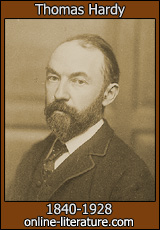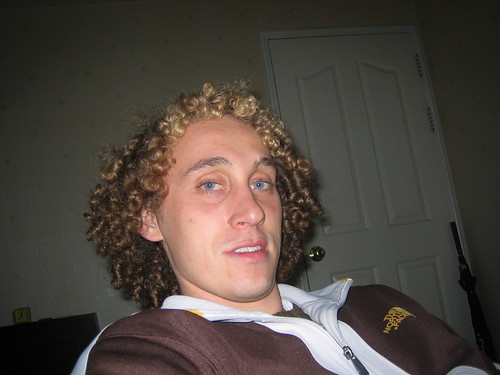Recently I found out my student teaching placements; both are near-by districts, and both are
 urban settings. This is good. I want to get a job in The City come next fall, and this as close as it gets. The first district is more local than the other, and some of the individuals I work with at my job beeping groceries have graduated from that district. We have discussed my student teaching briefly, and some customers have heard where I was going. Most customers have a comment, and they all lie along the same idea - I will need help. I have received comments like "God bless you" or "Good luck with that one. You're going to need it." No one has offered me a positive response like "Oh, that will be a good experience."
urban settings. This is good. I want to get a job in The City come next fall, and this as close as it gets. The first district is more local than the other, and some of the individuals I work with at my job beeping groceries have graduated from that district. We have discussed my student teaching briefly, and some customers have heard where I was going. Most customers have a comment, and they all lie along the same idea - I will need help. I have received comments like "God bless you" or "Good luck with that one. You're going to need it." No one has offered me a positive response like "Oh, that will be a good experience."
It also goes beyond the customers in the local area. In talking to individuals who have never set foot in this district, or even the town, I have heard them begin to demean the students and the district. Where does this bias come from? Is it because it is an urban district? Is it that it is a seemingly troubled city? Why this unfounded bias?
I am not suggesting that these kids are angels, nor am I suggesting that they are devils, but this is the only response I receive from customers - from the public. Perhaps maybe this has something to do with the possible negative attitudes of students in these schools? Maybe a fight breaks out once upon a time, and suddenly there is talk with in the community at how the school is going down hill, and it's expected that more fights, and more issues come to light, and it happens.
Maybe I am giving the district too much credit without actually stepping foot in the building, but regardless, we must remember that when we have low expectations, and it becomes publicly known that our expectations are low, the results will be low.

 The group consists of some decent students, but the thing is, they are quiet. Eerily quiet. This makes for any discussion difficult. They do not like to answer questions that I ask, and giving their individual opinions is unheard of. Instead of a group discussion, I am forced to pose questions and prod them gently with a heavy club to illicit an answer.
The group consists of some decent students, but the thing is, they are quiet. Eerily quiet. This makes for any discussion difficult. They do not like to answer questions that I ask, and giving their individual opinions is unheard of. Instead of a group discussion, I am forced to pose questions and prod them gently with a heavy club to illicit an answer.  The
The  The other day I
The other day I  With that said, I will get back to the first few lines I spewed forth.
With that said, I will get back to the first few lines I spewed forth.  The students third rough draft is coming up; it's due the Monday after Thanksgiving Break. The due date was supposed to be the Monday before break, but things got
The students third rough draft is coming up; it's due the Monday after Thanksgiving Break. The due date was supposed to be the Monday before break, but things got 
 letting my brain turn to mush. That was not what I ended up doing. I met with The Professor Friday afternoon to discuss a class that I will be taking with her independently, and as the discussion wound down we decided to go get some coffee and grade the students' third reflection paper. We each had ten, and she finished a bit before me, but had other work to do so I wasn't left alone. It took me three hours or so to grade them. This may seem like a long time to grade ten papers of two pages in length - and it probably is - but I'm getting better. Earlier in the semester it would have taken me much longer, and this time I did it in one sitting.
letting my brain turn to mush. That was not what I ended up doing. I met with The Professor Friday afternoon to discuss a class that I will be taking with her independently, and as the discussion wound down we decided to go get some coffee and grade the students' third reflection paper. We each had ten, and she finished a bit before me, but had other work to do so I wasn't left alone. It took me three hours or so to grade them. This may seem like a long time to grade ten papers of two pages in length - and it probably is - but I'm getting better. Earlier in the semester it would have taken me much longer, and this time I did it in one sitting. The most common mistakes I saw surrounded the inclusion of quotes. Many students failed to properly introduce a quote and ended up with redundant statements that needed to be fixed. Others simply dropped the quote in the paper with out any sort of introduction, or synthesis of the quote. The Professor and I have discussed these issues before, and some of the students are getting it; others are not. Another huge problem with quotes was
The most common mistakes I saw surrounded the inclusion of quotes. Many students failed to properly introduce a quote and ended up with redundant statements that needed to be fixed. Others simply dropped the quote in the paper with out any sort of introduction, or synthesis of the quote. The Professor and I have discussed these issues before, and some of the students are getting it; others are not. Another huge problem with quotes was  I awoke this morning in my apartment and thought I was sleeping in a tent. I have no insulation in my ceiling, or my walls. It was cold. It was ten o'clock when my phone rang with The Professor on the other end explaining to me her battle with a sinus infection, and asking me to take the class on today. Her requests were simple:
I awoke this morning in my apartment and thought I was sleeping in a tent. I have no insulation in my ceiling, or my walls. It was cold. It was ten o'clock when my phone rang with The Professor on the other end explaining to me her battle with a sinus infection, and asking me to take the class on today. Her requests were simple:
 I will have a job next year, and not one beeping groceries. A real job where I teach secondary level students in English Language Arts. If I don't, then I might just have to go back to Asia. Perhaps Taiwan this time.
I will have a job next year, and not one beeping groceries. A real job where I teach secondary level students in English Language Arts. If I don't, then I might just have to go back to Asia. Perhaps Taiwan this time. The other day, the Professor was out and I had to begin students in on the third unit by showing them the video
The other day, the Professor was out and I had to begin students in on the third unit by showing them the video  junk into big piles for the town to come pick up?" I got some nods of agreement but mostly looks of confusion. "Well, my buddy goes around and picks up stuff that is getting thrown out and could be re-sellable, like bicycles, or gym equipment. He makes some decent money this way. It's gleaning."
junk into big piles for the town to come pick up?" I got some nods of agreement but mostly looks of confusion. "Well, my buddy goes around and picks up stuff that is getting thrown out and could be re-sellable, like bicycles, or gym equipment. He makes some decent money this way. It's gleaning." Most of my free time this weekend was
Most of my free time this weekend was  I just got done doing some work for another class I am taking and I had a few moments to pause and reflect on what I need to do this weekend while I'm not slaving at the local grocery store. At first it didn't seem like I had a lot to do. My classes where taken care of for the most part. A few things due next week, but nothing too much. Then it hit me. Monday. Ah, Monday. I TA on Monday mid-mornings, and it is this class that I must prep for.
I just got done doing some work for another class I am taking and I had a few moments to pause and reflect on what I need to do this weekend while I'm not slaving at the local grocery store. At first it didn't seem like I had a lot to do. My classes where taken care of for the most part. A few things due next week, but nothing too much. Then it hit me. Monday. Ah, Monday. I TA on Monday mid-mornings, and it is this class that I must prep for. As a substitute teacher, you often end up being a glorified baby sitter. Teachers seldom want you to teach new material to students, because chances are you'll do it wrong, and then they'll have to spend the next class undoing the damage the substitute did. For the most part I showed video's, administered tests of some sort, or gave out packets of class work. Occasionally I would have to grade the tests I gave, and this is where I had a dilemma. It's one thing to grade a multiple choice test, but grading short answer can be problematic.
As a substitute teacher, you often end up being a glorified baby sitter. Teachers seldom want you to teach new material to students, because chances are you'll do it wrong, and then they'll have to spend the next class undoing the damage the substitute did. For the most part I showed video's, administered tests of some sort, or gave out packets of class work. Occasionally I would have to grade the tests I gave, and this is where I had a dilemma. It's one thing to grade a multiple choice test, but grading short answer can be problematic. In the class I TA, I grade half of the assignments. For the most part they are small assignments - reflection pieces, drafts. I do not grade final drafts. This is fine by me. I'd rather not grade final drafts that carry large weight in regards to students final grades. I don't mind grading papers; it's not an incredibly difficult task. The problem I find is that there is no real rubric to grade papers on. There is an assignment, but not a rubric so I'm left to make my own judgement calls.
In the class I TA, I grade half of the assignments. For the most part they are small assignments - reflection pieces, drafts. I do not grade final drafts. This is fine by me. I'd rather not grade final drafts that carry large weight in regards to students final grades. I don't mind grading papers; it's not an incredibly difficult task. The problem I find is that there is no real rubric to grade papers on. There is an assignment, but not a rubric so I'm left to make my own judgement calls. With the
With the 


